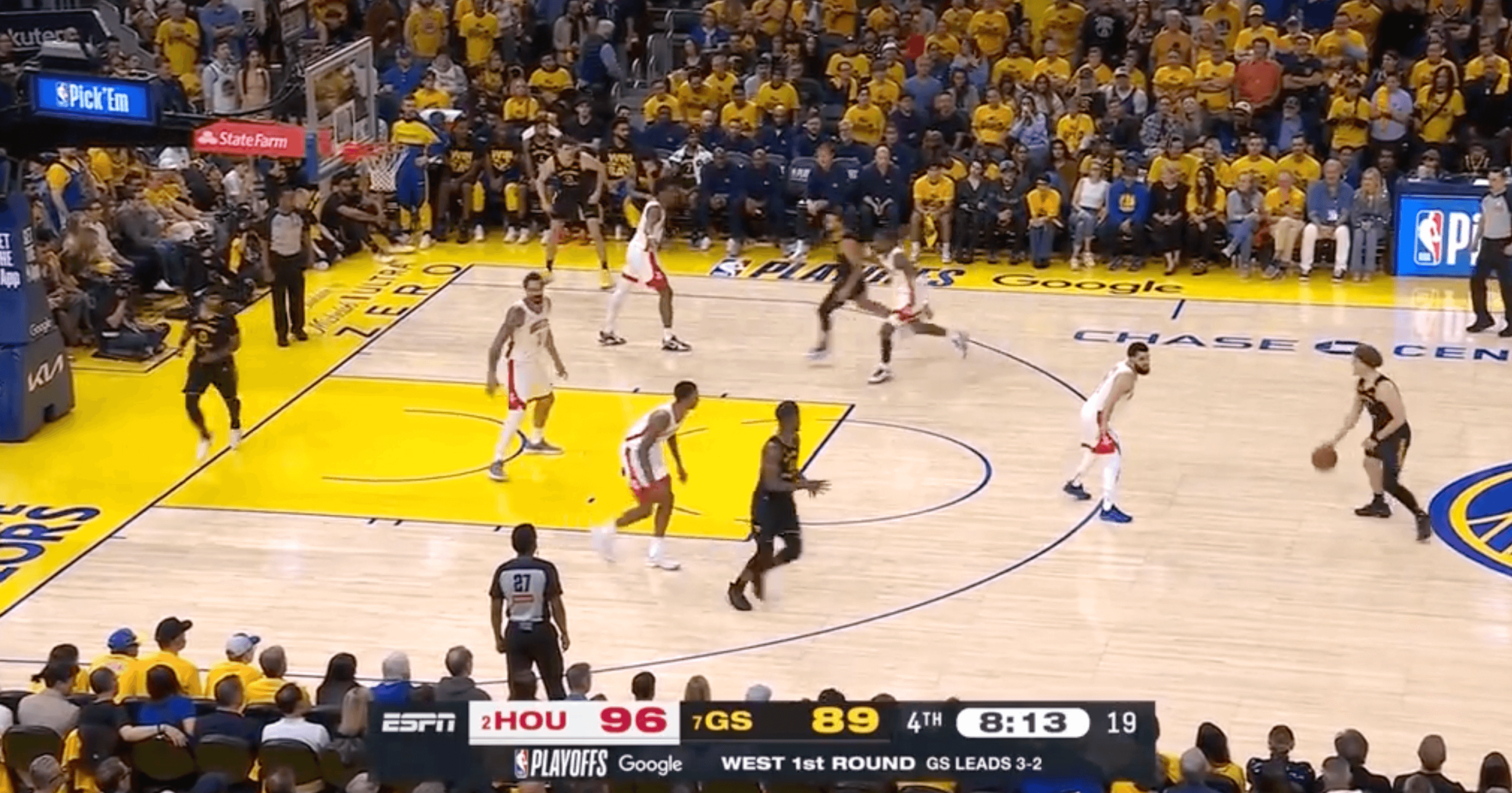
SAN FRANCISCO — As Rockets head coach Ime Udoka addressed reporters a few hours before Houston’s stunning 115-107 Game 6 win over the Golden State Warriors, his veneration of longtime head coach Gregg Popovich, his former boss, seemed more important than prepping for an elimination game.
Popovich, who stepped down as head coach of the San Antonio Spurs on Friday — a position he has held for three decades — is several things. A champion. An X’s and O’s tactician. A player development aficionado. A Hall of Famer.
Advertisement
But Popovich, as a coach, was also a leader and a confidant.
Udoka stems from the Popovich coaching tree, as do many other coaches in professional basketball, including Warriors head coach Steve Kerr. But the similarities between the mentor and mentee lie deeper than the shared work experience.
Udoka, like Popovich, is obsessed with defense and demands accountability from his players. Udoka, like Popovich, holds his veteran players in high regard and uses them as teachers by proxy. Udoka, like Popovich, is a fierce competitor.
So if the Rockets are to learn from this experience, if they’re able to complete the comeback from a 3-1 deficit — a feat achieved only 13 times in NBA history — they’ll need to learn from Udoka, just as he learned from Popovich.
“He does it his way,” Udoka said of his former coach. “The first thing he would tell you is you have to be yourself, not copy somebody, be who they are.”
The Rockets have gotten to where they are by being themselves. By Game 6, there were no more places to run and hide. Both teams had a deep understanding of the other and had already seen multiple in-game adjustments and counters to keep the playoff tactical battle alive.
But Houston, for all their talent and youth, had yet to win consecutive games in the series. They had experienced everything else — monster games from Steph Curry and Jimmy Butler, off nights from the Golden State duo, big contributions from role players and more. Game 5 was a turning point for Udoka and the Rockets, with an understanding of what each following game would need and how the Warriors’ best chance of advancing lay with Curry and Butler.
None of that matters in a Game 7. It’s winner-takes-all all. The Rockets have gotten this far, defying the odds that had them pinned by a 3-1 deficit. On Sunday, they’ll need to lean on that identity one more time, because at the other end, Curry, Butler, Kerr and Draymond Green have all been in this situation before.
Advertisement
They’ll need to rely on Fred VanVleet, who in Game 6 reminded Houston’s young core not only of the value of a playoff riser, but why he chose to join the Rockets in the first place. Over the last three games, VanVleet has scored 25, 26 and 29 points, shooting an eye-popping 18 for 27 from behind the arc. VanVleet amassed just 17 points in Games 1 and 2 combined, putting the Rockets in great danger of succumbing to a Warriors team already focused on taking Jalen Green out of an offensive rhythm. But VanVleet, having beaten this Warriors team in the 2019 NBA Finals, has finally put his foot down.
“Just being ready,” VanVleet said. “You work all year and train all summer for these moments and I’ve always prided myself on trying to rise to the occasion.”
For two seasons, VanVleet has said and done all the right things for Houston’s young core. He has blended into the team concept and has been a much-needed stabilizing force. But the playoffs are an inexact science. So in Game 6, when VanVleet demanded the ball, early and often, his teammates obliged.
“I’ve taken a different role for this team over the last two years,” VanVleet said. “And (I’m) just trying to squeeze as much juice out of this group as possible. I’m ready and willing when the time comes to step up and make big plays.”
They’ll also need to rely on a defense that has been aggressive, consistent and versatile since October. The offense, however, is unlikely to find that same consistency. Even in victory, the Rockets struggled in the half court, scoring a meager 90.2 points per 100 half-court plays — good for the 29th percentile among playoff teams and less efficient than the Warriors (94.4).
But when their offense has slacked, their defense has always been there to bail them out. Curry and Butler finished with 29 and 27 points, respectively, numbers one would assume would result in a playoff win. In the fourth quarter, however, the Rockets’ defense sealed the door shut. Curry and Butler were held to 1-for-12 shooting in the final frame.
Advertisement
The Warriors scored 23 points in the fourth quarter, including a nearly eight-minute span where the team was held to a single field goal. If there was any subtle tweak made in this game by Udoka, it was giving Golden State a healthy dosage of the zone variations that had been thrown Houston’s way all series long.
Like in the possession below, the Rockets used principles from a “box-and-1” zone, a defensive approach Curry is quite familiar with, where ball pressure is sent up top and the other four players occupy the elbows and sides of the restricted area.

In the same possession, however, the Rockets could quickly shift to their intended structure — a 2-3 zone. A bold strategy, nonetheless, against the greatest shooter ever in Curry and multiple capable floor spacers. But Houston trusted that their constant shapeshifting could throw the Warriors off balance.
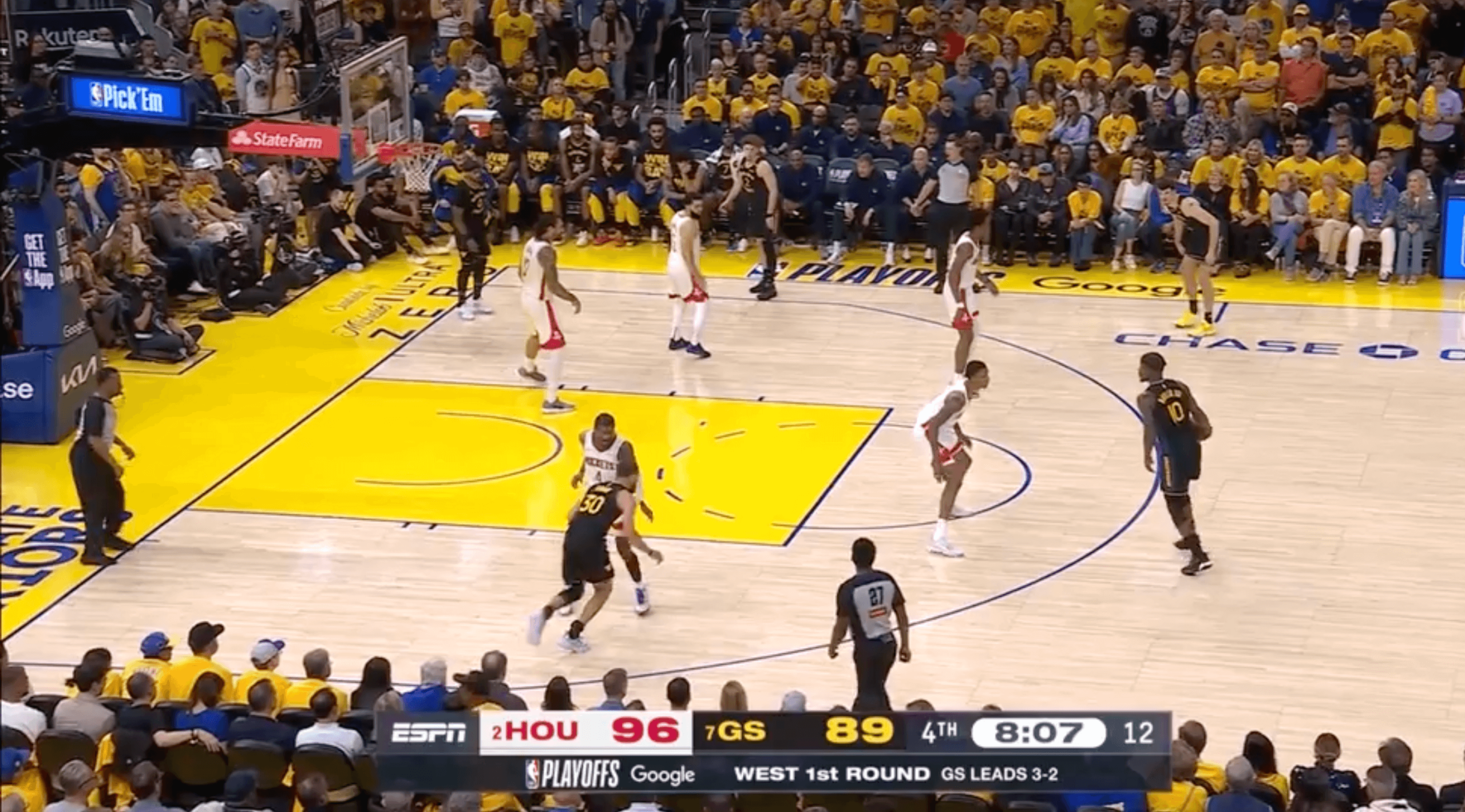
The final result, a corner 3 attempt from Butler, was the desired outcome. Butler is taking just 1.8 3s per game during the playoffs and is shooting less than 30 percent from the arc. As long as the Rockets can keep the ball out of Curry’s hands and force others into taking low-percentage looks, they’ll continue. Udoka admitted Houston’s communication is better in zone because of the need to contain an area as opposed to a player, which forces players to speak. Catching up with starting center Alperen Şengün by his locker after the game, he seconded the idea.
“Just attention to detail,” VanVleet said. “Trying to find the shooters. We’ve been experimenting with some things in the zone and having the bigs on the back line, and then just morphing and flying around. Half the time, we don’t even know what the hell we’re doing out there. I’m sure it’s hard to game plan against but just flying around, having effort, being physical. We know the guys that we want to limit their touches and shots, make it tough on them.”
Moments after the final buzzer sounded, the Rockets ducked under the tunnel, as a stunned Chase Center crowd sat in dismay. One by one, each player headed for the locker room. There was a businesslike aura about a team known for their bravado — no shouting, no taunting or joking. Reserve forward Jae’Sean Tate held up a finger to the sky, signifying how many more wins Houston needed to complete the comeback. Assistant coach Royal Ivey repeatedly uttered the phrase “one more” enough times that each member of the organization understood the message.
Game 7 beckons. Momentum has shifted almost instantaneously. The comeback, which felt impossible a few days ago, is now within their grasp.
Advertisement
Other notes
• This won’t get much mention elsewhere, but I thought Udoka’s mental battle concerning reserve big Steven Adams and the hack-an-Adams strategy the Warriors employed was fascinating. The reasoning is sound — intentional foul and force Adams, a 46.2 percent free-throw shooter to step up to the line and convert. In previous games, Udoka was forced to sit Adams earlier than he’d like to because of how frequently the Warriors fouled him, putting them out of a rhythm. In Game 6, Udoka stuck with his veteran center and was rewarded. Adams went 9-for-16 from the line, a solid tradeoff to his physicality seen at both ends of the floor. Adams finished with 17 points, five rebounds, three blocks and a steal in 31 minutes.
• Also thought Jalen Green played a fine all-around game despite not shooting the ball well (3-for-11, 12 points). He finished the game with a plus-20, the highest plus-minus for any player on the floor and considerably more than any other Rockets starter, in what ended as an eight-point game. He chipped in three assists and five rebounds but according to the book of Udoka, playing consistent, aggressive defense will get you on the floor. In the possession below, Jalen Green is able to delay a ball entry to Draymond Green and subsequently forces Moses Moody to change course on a drive, before defending him in space, all in the span of a few seconds.
“We know what we’re trying to do in zone,” Jalen Green said. “We communicate. Staying aggressive, knowing when we have to scramble. As long as we’re on the same page, staying together, we’re pretty good defensively.”
(Photo: Ezra Shaw/Getty Images)
This news was originally published on this post .




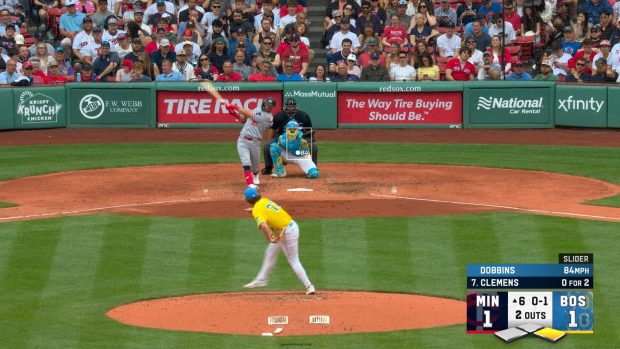
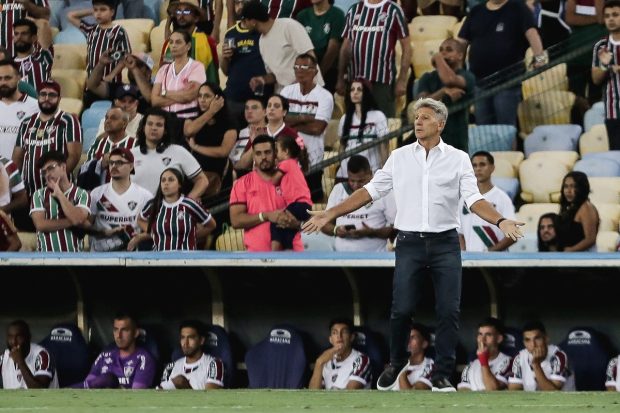
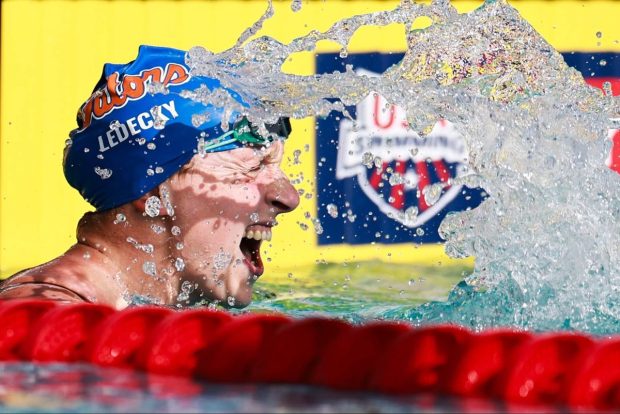
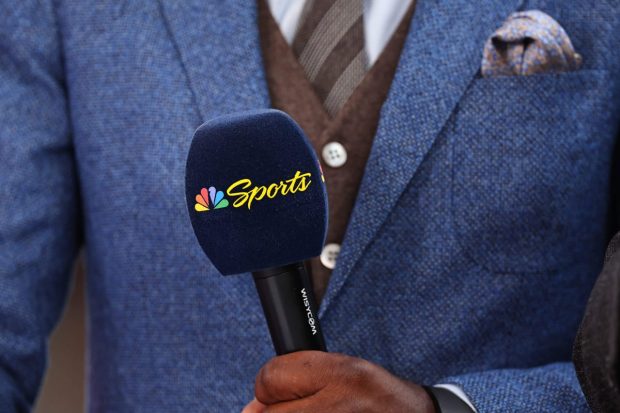
Be the first to leave a comment